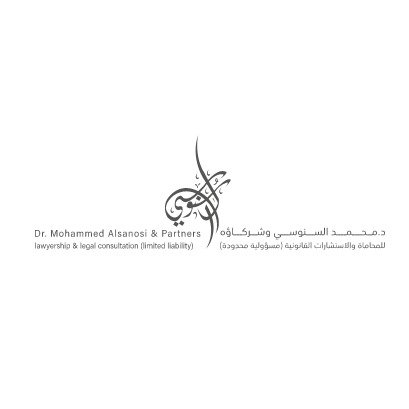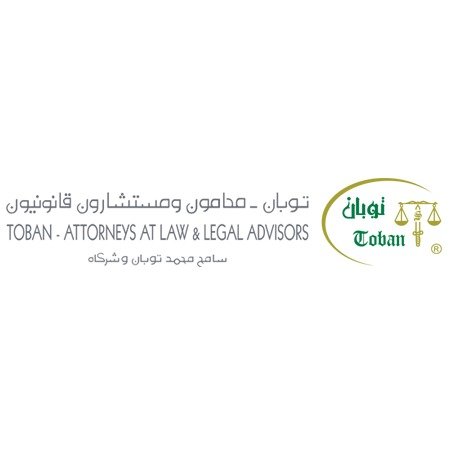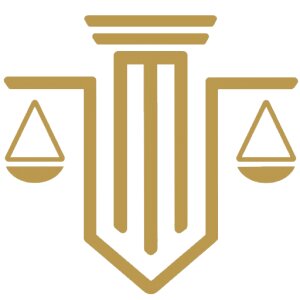Best Public-Private Partnerships (PPP) Lawyers in Jeddah
Share your needs with us, get contacted by law firms.
Free. Takes 2 min.
List of the best lawyers in Jeddah, Saudi Arabia
About Public-Private Partnerships (PPP) Law in Jeddah, Saudi Arabia
Public-Private Partnerships, or PPPs, are collaborative projects between the government and private sector companies to finance, build, and operate projects that serve the public interest. In Jeddah, as in the wider Kingdom of Saudi Arabia, PPPs are increasingly used in sectors such as infrastructure, utilities, healthcare, transport, and education. The legal framework for PPPs is evolving, influenced by Saudi Vision 2030, with a focus on diversifying the economy and increasing private sector participation in public services and development projects.
Regulations specifically governing PPPs aim to provide a transparent, fair, and competitive process for both Saudi and international investors. The Saudi Government, through various ministries and authorities, offers guidance, tendering procedures, and contractual standards designed to ensure that PPPs are aligned with national development goals and provide value for money to the public sector.
Why You May Need a Lawyer
Engaging in a PPP project involves a complex mix of legal, financial, and regulatory considerations. Here are some common situations where seeking legal help in PPP matters can be essential:
- Reviewing and negotiating PPP contracts and concession agreements
- Navigating government tender and procurement procedures
- Understanding regulatory requirements under Saudi PPP laws and Sharia principles
- Managing risk and compliance associated with long-term public projects
- Handling disputes or claims arising from PPP performance or contract terms
- Structuring finance and investment arrangements
- Assessing tax, licensing, and land use implications for projects
- Facilitating joint ventures or consortium partnerships with local and international entities
Lawyers experienced in Saudi PPP law can play an invaluable role at every stage, from initial proposal through to project completion and handover.
Local Laws Overview
Public-Private Partnerships in Jeddah are primarily governed by a framework established at the national level, including the Private Sector Participation Law (PSP Law), executive regulations, and sector-specific guidelines issued by relevant ministries or agencies. Key aspects of the local legal environment include:
- PPP Framework: The PSP Law and its implementing regulations set out the legal structure for PPPs, including project selection, tendering processes, contract approval, and risk allocation guidelines.
- Foreign Investment: Saudi Arabia permits foreign entities to participate in PPPs, subject to licensing and compliance with Saudi Arabian General Investment Authority (SAGIA, now Ministry of Investment) policies.
- Sharia Compliance: All PPP agreements and financial structures must comply with Sharia law, which can affect contract terms, financing arrangements, and dispute resolution mechanisms.
- Contractual Standards: The government provides model contracts for PPPs, but each project can present unique terms depending on the sector and risk profile.
- Dispute Resolution: Disputes are often subject to local courts, with some contracts allowing for arbitration in accordance with Saudi or international rules, provided they do not conflict with Saudi law.
- Land and Licensing: Laws govern land acquisition, use, and tenure for PPP projects, as well as operational licensing requirements, especially for foreign participants.
- Transparency and Reporting: PPPs are regulated to ensure transparency in bidding, awarding, and execution, with public entities required to follow competitive bidding and reporting standards.
Frequently Asked Questions
What is a Public-Private Partnership in Saudi Arabia?
A Public-Private Partnership involves collaboration between a government agency and private sector companies to finance, build, operate, or maintain infrastructure or services that benefit the public, such as roads, hospitals, or schools.
Are foreign companies allowed to participate in PPP projects in Jeddah?
Yes, foreign companies can participate in PPPs, either independently or in partnership with Saudi entities, provided they comply with licensing and investment requirements set by the Ministry of Investment and other sector regulators.
What laws govern PPPs in Jeddah?
The main legal framework is provided by the Private Sector Participation Law, its executive regulations, and guidelines issued by relevant ministries and project-specific authorities.
How are risks allocated in PPP contracts in Saudi Arabia?
Risk allocation in PPP contracts is based on principles of efficiency and value for money, with risks assigned to the party best able to manage them. This is governed by both government policy and the specifics of each project.
How is Sharia law relevant to PPP agreements?
All contracts and financial structures in Saudi Arabia must comply with Sharia law, which may restrict certain types of interests, guarantees, or dispute resolutions that conflict with Islamic legal principles.
What is the process for tendering a PPP project?
PPP projects are typically tendered through a competitive bidding process managed by the responsible government authority. This process involves pre-qualification, bidding, evaluation, and contract award, all regulated for fairness and transparency.
Are PPPs limited to certain sectors?
No, PPPs can be used in a variety of sectors. However, common areas in Jeddah include infrastructure, transportation, healthcare, utilities, real estate, and education.
What happens if a dispute arises in a PPP project?
Dispute resolution procedures are set out in the PPP contract and may involve negotiation, mediation, local courts, or arbitration, provided the process complies with Saudi law.
Do PPP projects require government guarantees?
While not always required, some PPP projects may involve government guarantees or support, especially where there are significant risks or long-term financial commitments involved.
How can a lawyer help with a PPP project in Jeddah?
Lawyers provide advice on compliance, risk management, contract negotiation, regulatory approvals, dispute resolution, and structuring deals to align with both commercial and legal requirements in Saudi Arabia.
Additional Resources
If you are considering participation in a PPP project in Jeddah, the following resources and bodies can offer useful guidance and support:
- National Center for Privatization and PPP (NCP): Oversees regulations, project pipelines, and procedures for Saudi PPPs
- Ministry of Investment (MISA): Handles foreign investment licenses and regulatory compliance for foreign investors
- Jeddah Chamber of Commerce & Industry: Offers support for local and international companies interested in conducting business in Jeddah
- Sector-specific authorities: Ministries or authorities overseeing health, transport, water, and construction projects
- Local legal firms: Provide expert advice on Saudi PPP law, contract negotiations, and compliance issues
Next Steps
If you are planning to engage in or inquire about a PPP project in Jeddah, consider the following steps:
- Conduct preliminary research on the sector and specific PPP opportunities in Jeddah
- Identify applicable regulations, licensing, and compliance requirements
- Consult with a reputable local law firm experienced in PPP matters
- Prepare all necessary documentation and develop a robust project proposal or bid
- Engage with relevant governmental authorities early in the process for guidance
- Secure required licenses, approvals, and, if applicable, investment permits
- Negotiate contract terms with full legal guidance to ensure compliance with local laws and Sharia principles
- Develop a plan for ongoing compliance, risk management, and reporting throughout the project lifecycle
Taking these steps with the support of qualified legal professionals will ensure your interests are protected and your PPP project is set up for success within the legal framework of Jeddah, Saudi Arabia.
Lawzana helps you find the best lawyers and law firms in Jeddah through a curated and pre-screened list of qualified legal professionals. Our platform offers rankings and detailed profiles of attorneys and law firms, allowing you to compare based on practice areas, including Public-Private Partnerships (PPP), experience, and client feedback.
Each profile includes a description of the firm's areas of practice, client reviews, team members and partners, year of establishment, spoken languages, office locations, contact information, social media presence, and any published articles or resources. Most firms on our platform speak English and are experienced in both local and international legal matters.
Get a quote from top-rated law firms in Jeddah, Saudi Arabia — quickly, securely, and without unnecessary hassle.
Disclaimer:
The information provided on this page is for general informational purposes only and does not constitute legal advice. While we strive to ensure the accuracy and relevance of the content, legal information may change over time, and interpretations of the law can vary. You should always consult with a qualified legal professional for advice specific to your situation.
We disclaim all liability for actions taken or not taken based on the content of this page. If you believe any information is incorrect or outdated, please contact us, and we will review and update it where appropriate.
















